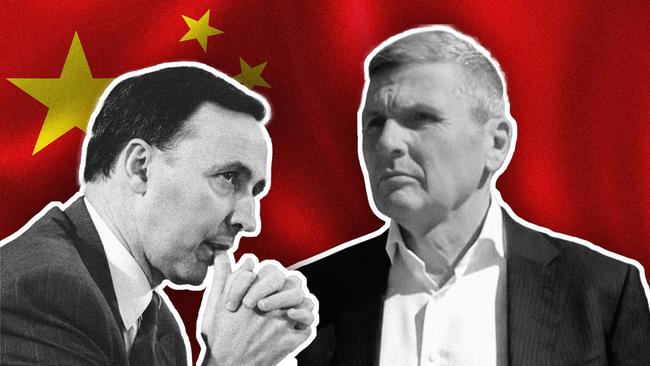
Keating’s role in the Hawke government reforms was as outsized as his personality. He went where Liberal-led governments feared to tread, deregulating the financial sector, floating the dollar, dismantling tariffs and reforming industrial relations. He embraced the free market with the privatisation of Qantas, the Commonwealth Bank and Telstra.
Keating’s own list of his greatest hits would be far longer but he would be a greater man if he acknowledged that none of the most wrenching reforms would have been possible without Hawke. People trusted Hawke and that created the space for radical change.
What credit does Keating give Hawke? “In brutal intellectual terms Bob could only have got a PhD in ordinariness,” he said in an interview with journalist Kerry O’Brien.
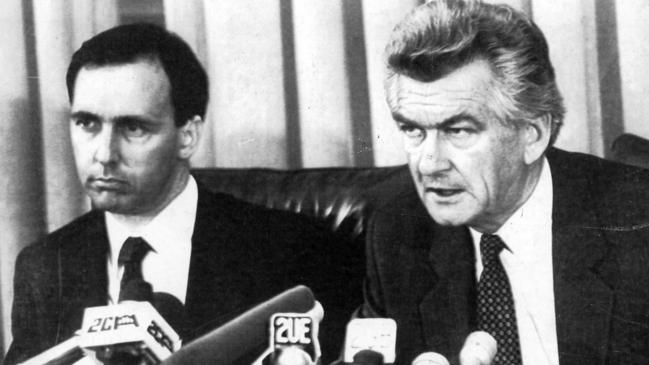
We know that, bar himself, Keating believes there have been no great Australian leaders because he said so in his (in)famous 1990 Placido Domingo speech. By his reckoning there have been two great US presidents, Abraham Lincoln and Franklin Roosevelt.
“While the Labor Party is always talking about how great (John) Curtin is, and the rest, Curtin was our wartime leader and a trier but we’ve never had that kind of leadership. And it shows,” Keating said.
That “trier” was the prime minister who transformed Australia’s defence when, in the wake of the attack on Pearl Harbor in December 1941, he declared the nation “looks to America, free of any pangs as to our traditional links or kinship with the United Kingdom”.
After the fall of Singapore in February 1942, Curtin defied both Roosevelt and Winston Churchill in demanding Australian troops on route from the Middle East not be diverted to fight in Burma but returned to defend the homeland.
Curtin barely slept as the troops crossed waters controlled by the Japanese. It ruined his health and he died just months before the war ended, as much a victim of it as any soldier. His deputy, Frank Forde, lamented the loss in parliament.
“The captain has been stricken in sight of the shore,” Forde said. “His memorial stands around us – a free land, a free people.”
Opposition leader Robert Menzies said he took issue with Curtin’s politics but “it was impossible and unthinkable to attack his probity, his honesty of purpose, the man himself”.
Attacking the probity, honesty and purpose of people is Keating’s leitmotif. When he launched the book John Curtin’s War, Keating described Menzies as a “dreadful fop” a “vacuous dandy” and “a woeful coward”.
The last gibe was, no doubt, based on the fact that Menzies did not serve in the First World War. His family made the decision that sending their two oldest sons to war was enough, the youngest would stay home. That decision would haunt Menzies for the rest of his political career.
Courage has many guises. Political courage is rare and Menzies displayed it in a remarkable radio address in the midst of a war. In it he took issue with government propaganda that launched a race-based attack on the Japanese saying: “We always did despise them anyhow.”
Menzies believed this was “fantastically foolish and dangerous”.
“It is, in my opinion, poor policy to try to persuade people to despise the Japanese,” he said. “I think it was Napoleon who was credited with saying that ‘hatred is the mark of a small man’. If this war, with all its tragedy, breeds into us a deep-seated and enduring spirit of hatred, then the peace when it comes will be merely the prelude to disaster and not an end of it.”
After the war Menzies worked to rapidly re-establish trade relations with Tokyo and, as he told Japanese journalists, “to help in our own fashion to restore your great country to the general community of nations”. This at a time when Australian memories of the conflict were still raw and when the federal parliament boasted six MPs who had been prisoners of war, among them Alexander Downer’s father.
It was Menzies, not Keating, who began finding this nation’s security in Asia, when he signed the Australia-Japan Commerce Agreement in 1957.
Keating once valued Tokyo and Washington. As prime minister in 1992 he declared “maintenance of a close security relationship between the United States and Japan is especially important”.
“I put the case vigorously for continued US engagement in the Western Pacific,” Keating said in a speech to the Asia-Australia Institute. “I mean a strategic presence and an economic presence and a presence in our regional institutions. The United States will be better for that, so will Asia.”
Not anymore. Keating’s latest contribution is to declare “We are better left alone than we are being protected by an aggressive power like the United States.” On Japan, Keating went back to the ancient well of the war to draw hate.
“You know, 80 years they’ve had to atone for the crimes committed by (Japan) in Manchuria and of course in the rape of Nanjing, then the Chinese capital in 1937, you know,” he said. “Fundamentally, they won’t do it.”
Keating is happy to cede Taiwan to Beijing as “Chinese real estate”. This is true in one sense: it is home to a thriving Chinese democracy. But most of its people would rather not be subjected to the authoritarian rule of the Communist Party, which has never governed the island. And Keating should re-read the One China policy: it never acceded to Beijing’s demand of sovereignty over Taiwan.
Dismissing the hopes of 23 million people is not the end of Keating’s generosity with other people’s liberty. In 2021 he wrote: “Save for its front porch, the South China Sea, (China) broadly keeps to itself.”
This trinket is Beijing’s illegal claim over 80 per cent, or 280,000 square kilometres, of territory that is disputed by six other nations. An international tribunal has ruled that this is not China’s “front porch”. If this is Keating’s idea of China “keeping broadly to itself” God help us if it starts feeling gregarious.
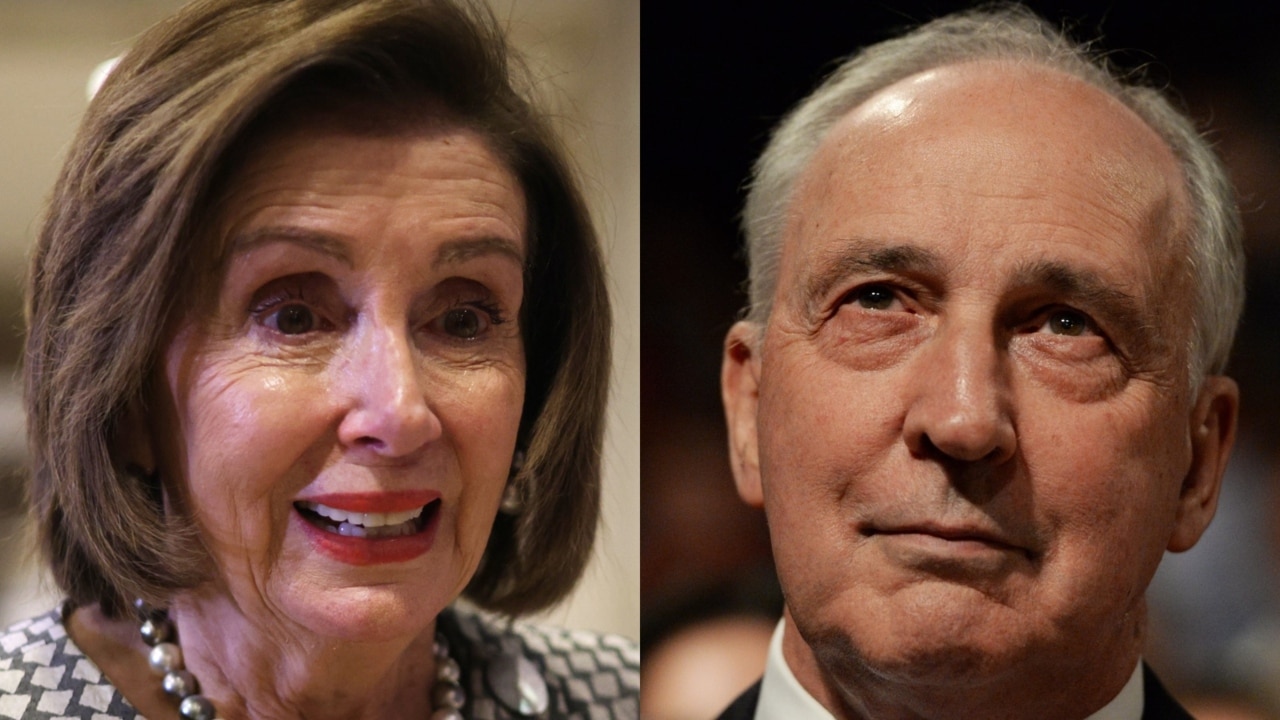
Keating sees no reason for alarm in Beijing’s massive military build-up. To dismiss it he sets up the straw man of unlikely invasion as the only threat and then claims that, anyway, any armada heading this way could be sunk to the last aircraft carrier without US assistance. With what?
He ignores the more likely scenario that this island continent gets isolated, as China takes control of the sea lanes on all points of the compass.
Keating also ignores China’s cyber warriors planting virtual bombs on our critical infrastructure, the daily assaults on public and private networks, and the information warfare campaign, designed to spread division in our society. He is silent on Beijing’s hostage diplomacy and the harassment of our citizens by Chinese officials inside our borders.
Keating rails against “the military control of Australia” by the United States but doesn’t seem at all worried about becoming a de facto province of China, sworn to silence or punishment.
Curtin died knowing he had helped ensure Australia would remain a free land and a free people. That made him great. And, whoever said it, it is true: hatred is the mark of a small man.


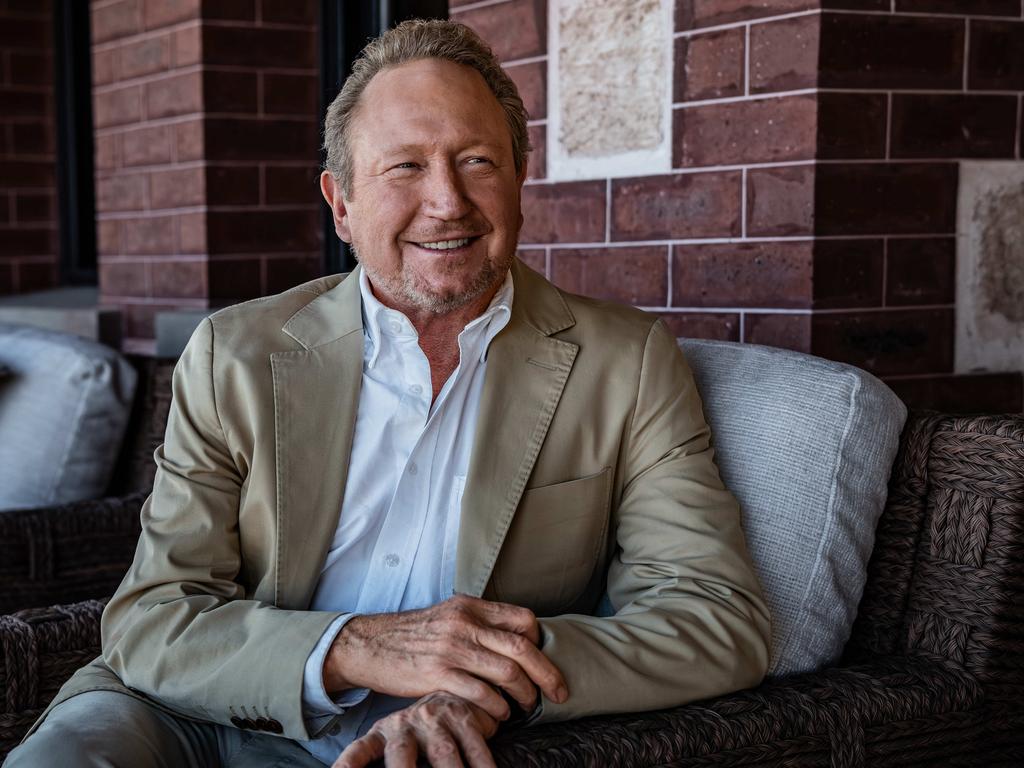
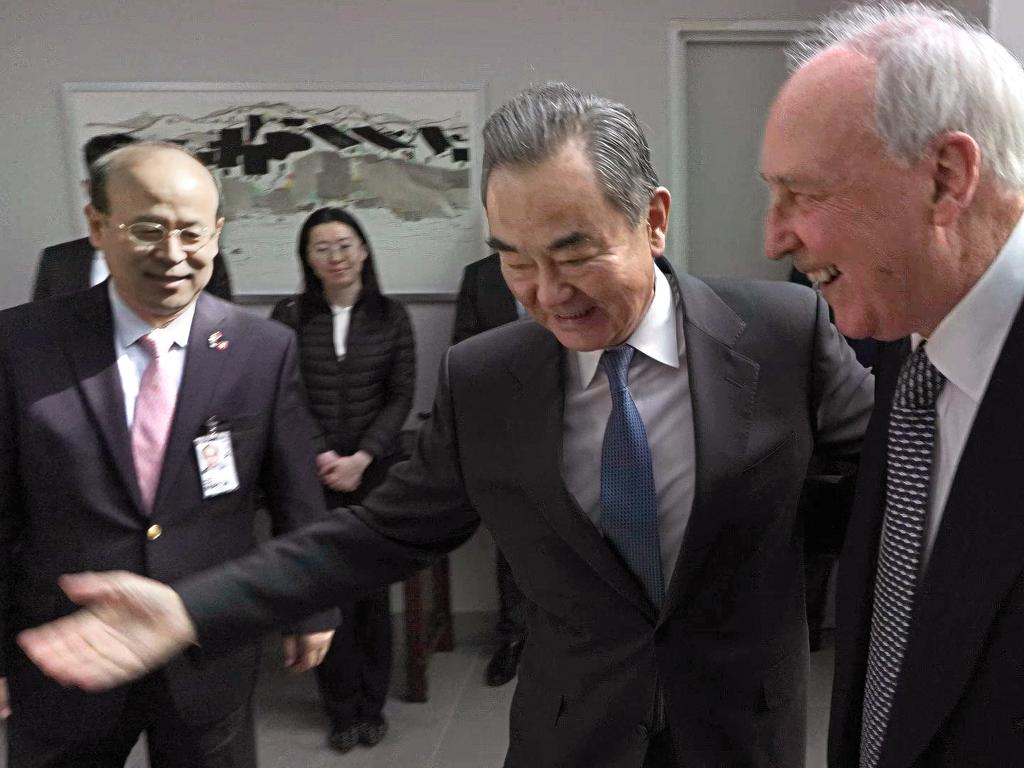
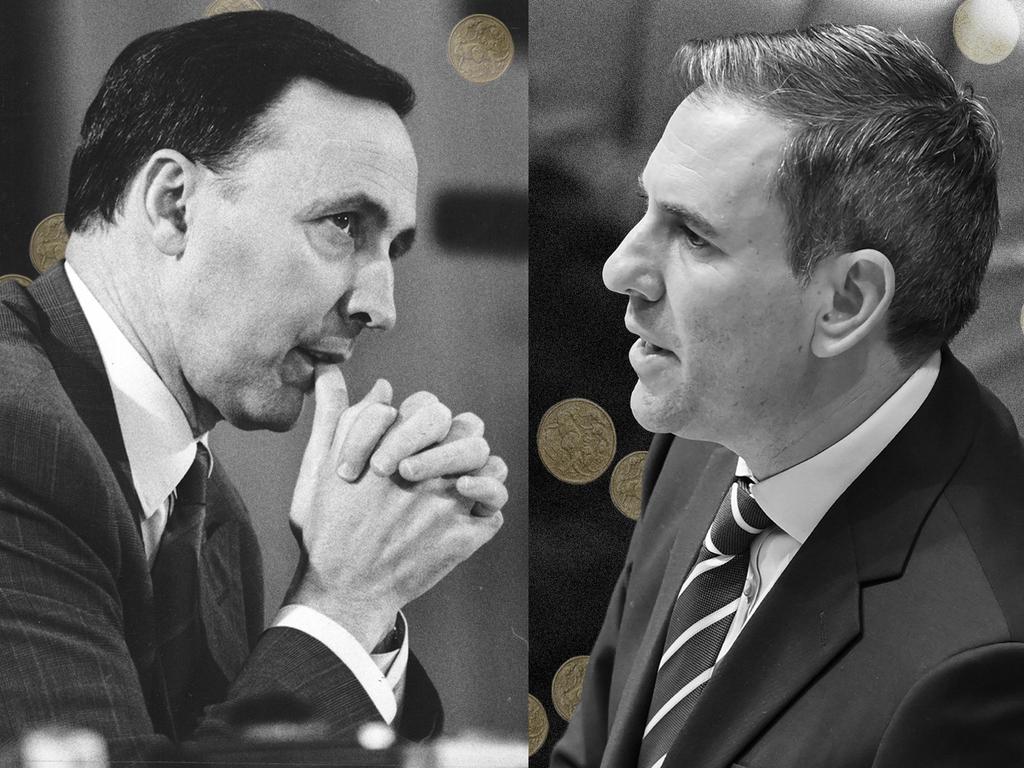
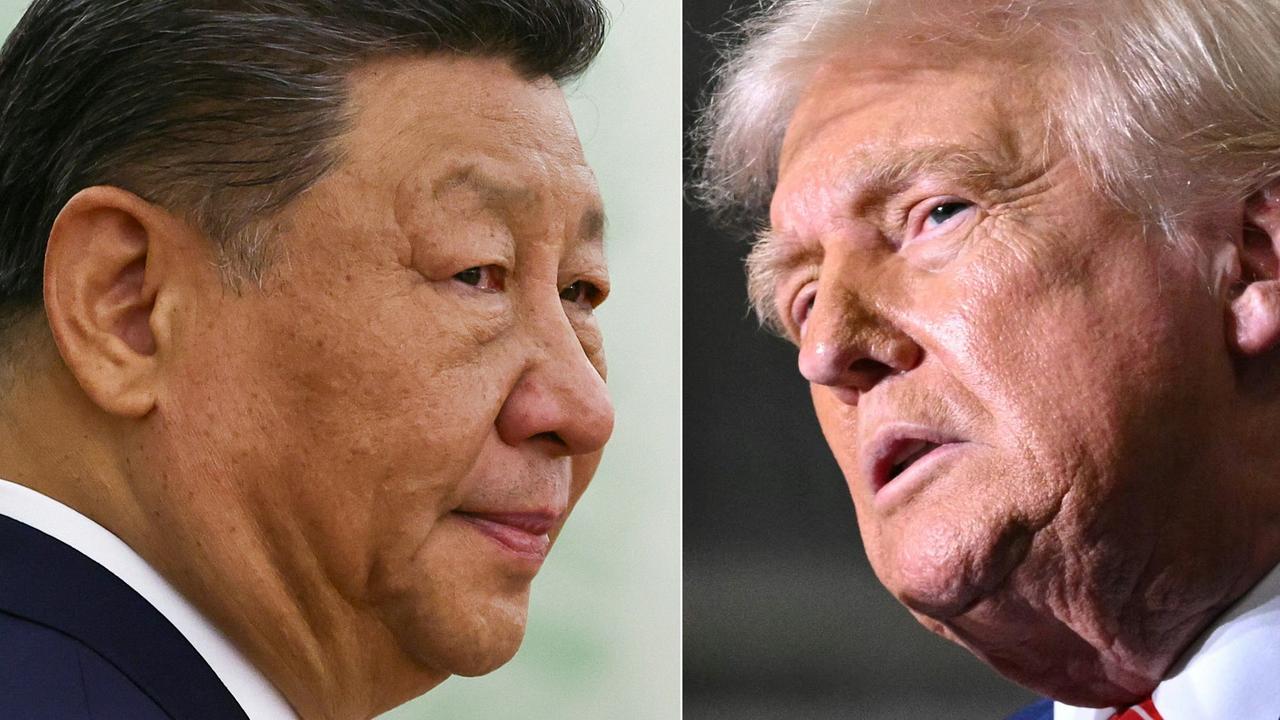

Paul Keating was treasurer in arguably the finest federal cabinet Australia has ever assembled; the first one led by Bob Hawke.